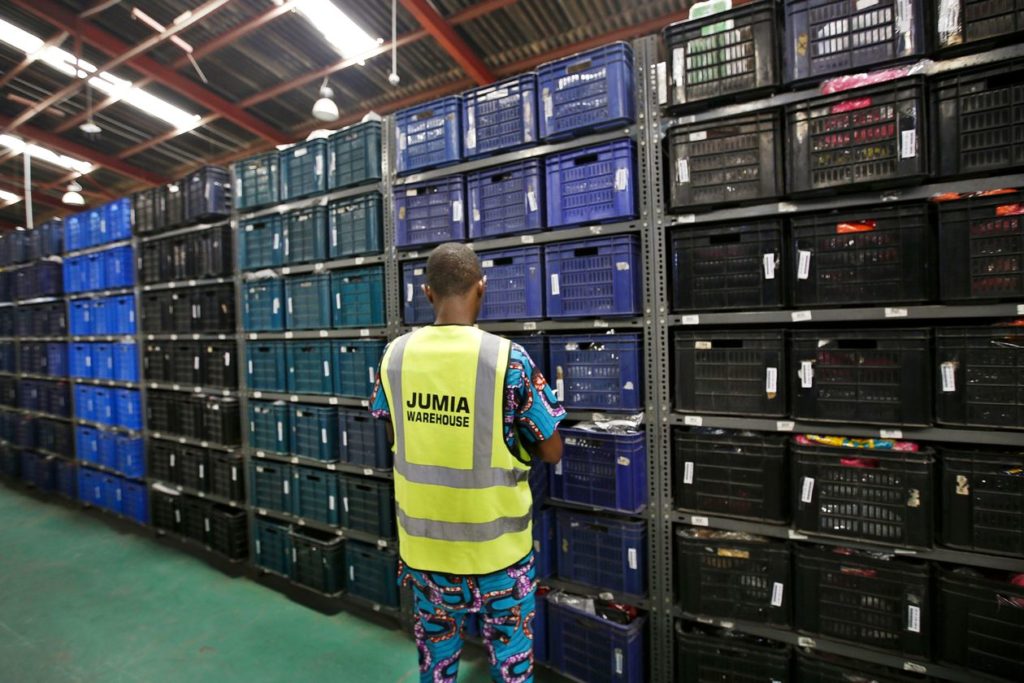A worker inside a Jumia Technologies distribution warehouse in Lagos, Nigeria. Jumia is one of the frontier tech companies in emerging markets. The growth of the online economy has, theoretically, greater scope in less developed countries. The fewer legacy banks, credit cards, and stores, the more opportunity for new digital players to offer finance, payments, and shopping. This leapfrog effect has played out spectacularly in China. Now, it’s moving everywhere. “Fintech is the strongest substory in the larger emerging tech story,” says Kevin Carter, founder of the EMQQ Emerging Markets Internet and Ecommerce exchange-traded fund (EMQQ).
A surprise darling is Kazakhstan-based Kaspi.kz (KSPI.United Kingdom). Starting with a bricks-and-mortar bank, this company has developed a “super app”—combining financial services, shopping, and payments—that dominates its home country of 19 million with eyes on 70 million more customers across Central Asia and the Caucasus. The stock has nearly doubled since an initial public offering last October. “Consumer banking penetration in Kazakhstan is just 6.7% of gross domestic product,” says Sandeep Srinivas, a fund manager at frontier markets investor FIM. “That is a long runway for growth.”
Safaricom (SCOM.Kenya) in Kenya is a role model for frontier fintech with its ubiquitous M-Pesa mobile payments network. Its stock has gained a respectable, by raging bull standards, one-third over the past six months. But the market sensation in Africa is Nigeria-based Jumia Technologies (JMIA), which combines payments with an Amazon -style e-commerce platform and logistics arm. Its shares have quadrupled since October, when renowned short seller Andrew Left withdrew fraud accusations and called the company a Buy.
If frontier markets are a leap too far, you could look to Indonesia, where shares in point-of-sale payments champion Distribusi Voucher Nusantara (DIVA.Indonesia) have quadrupled from a low point last May. The company has already installed eight million Square-esque systems, a first step toward broader financial services for the “many unbanked small businesses” across the sprawling nation of 270 million, says Jinjoo Hong, an equity sales broker at Auerbach Grayson.
Her colleague Simon Mandel likes Logo Yazilim Sanayi ve Tikaret (LOGO. Turkey), a Turkish business software provider that operates half the country’s customer-relationship management systems. It’s riding an analogous wave of formalization in a big country with a multitude of cash-based mom-and-pop shops. Shares are up by half since November.
Among companies that haven’t broken out yet, Mandel suggests Sinqia (SQIA3.Brazil), a Brazilian bank software specialist, or Frontier Digital Ventures (FDV.Australia), which […]
